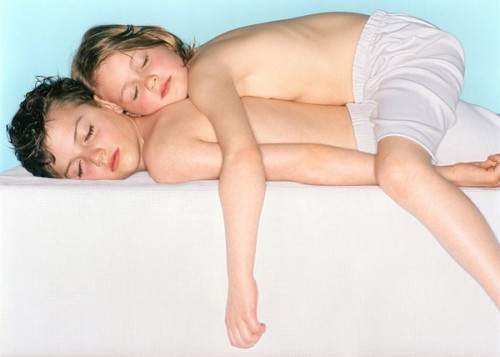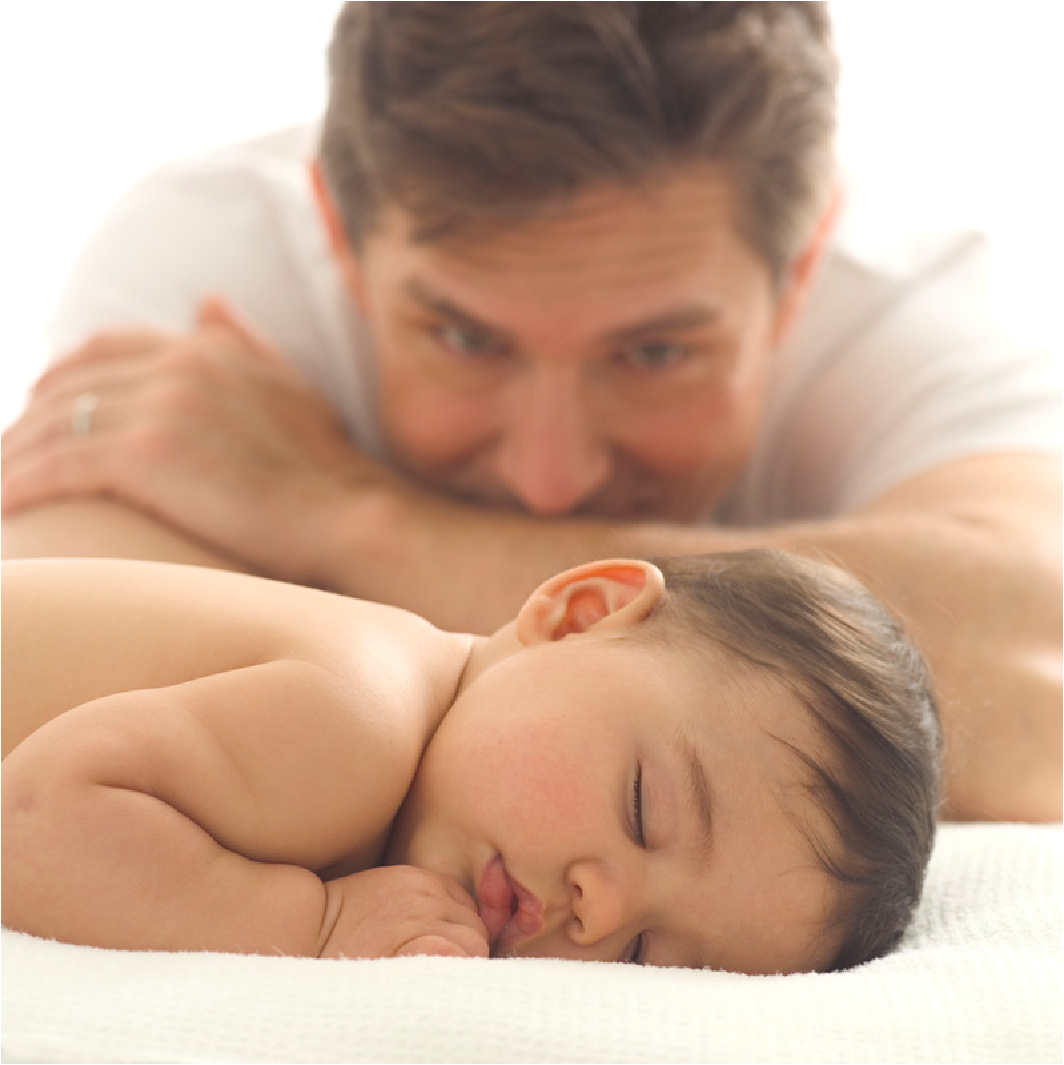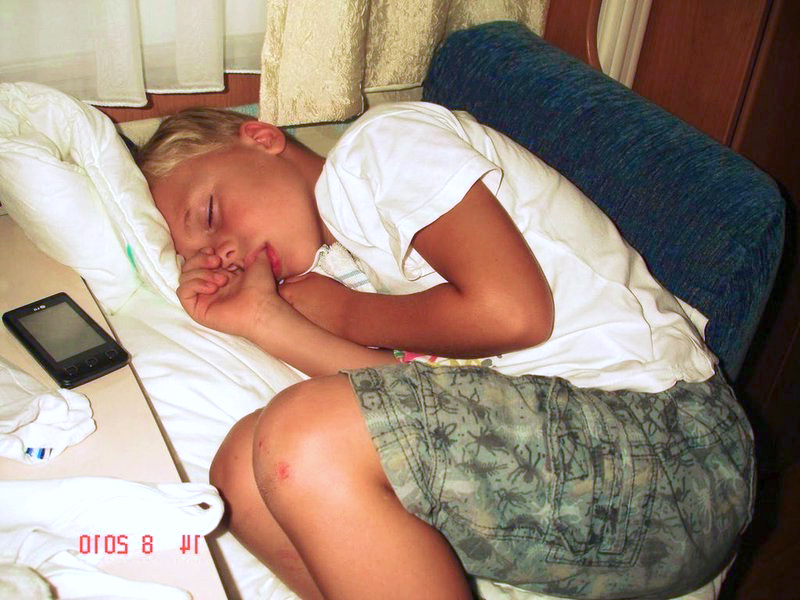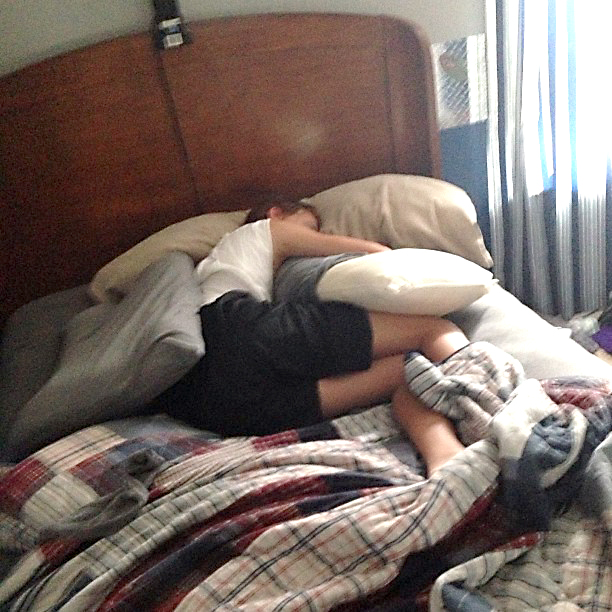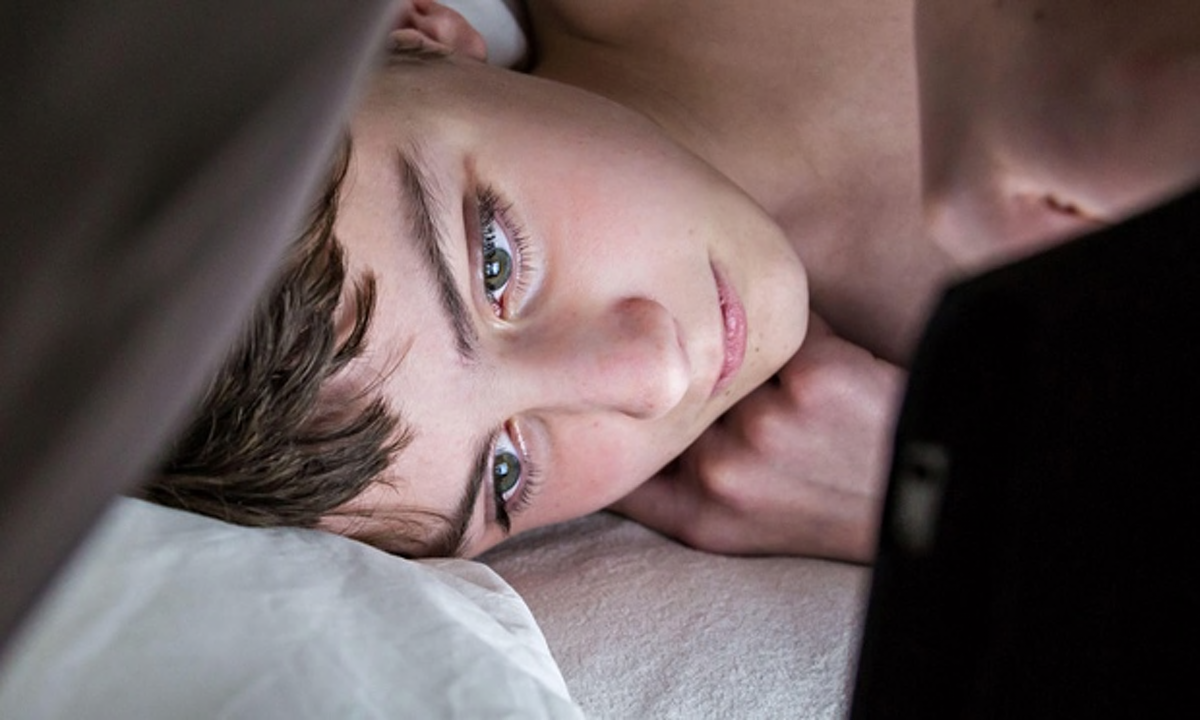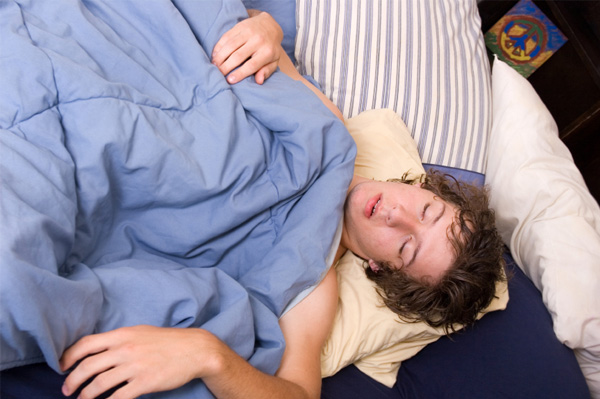How Much Sleep Should Children Be Getting?
Worrying is part of a parents job description and sleep is an issue worried about at both ends of the spectrum – infant, child and teen.
From sleeping through the night, to not wanting to go to sleep, to sleeping all day – just how much sleep should children be getting anyway?
Children’s need for sleep varies with age
Many of the things we know about sleep are intuitive to most parents if they just stop and consider – especially the notion that whether one is a child or an adult the amount of sleep one needs is quite personal.
However, we have run extensive studies which can give us general ranges and expectations. For instance, we know that the amount of sleep needed changes from childhood to adolescence – basically related to the amount of growth the body is doing (growth spurts = sleep spurts).
Sleep scientists talk about sleep in words like: timing, quantity and quality; and in aspects like: fragmentation, REM, deep, dreaming, training and hygiene.
For parents, we just know that: “when a kid can’t sleep, nobody can” and “when they don’t get enough, everyone suffers.”
How much sleep is normal?
Infants and Toddlers
Most parents who have attended even one pre-natal class realize that normal babies will awaken during the night and they are prepared for it. What first-time parents aren’t usually prepared for is that “THIS baby wakes US up ALL night!”
Having spent 9 months pretty much in the dark, in a temperature/humidity controlled environment where all sounds are muffled and soothing, where time is of no consequence and where expectations don’t even exist, it should be no surprise that they really have no sleep/wake cycle compatible with any earthling.
If truth be told they’d rather be sleeping all the time except that things like noise, hunger and elimination necessity keeps annoying them awake every 2 to 5 hours.
Pretty much a blank slate, their central nervous system begins identifying and categorizing all the inputs arriving from everywhere and patterns eventually begin forming.
At first, every 2-5 hours they awaken and spend one to three hours taking in all the sites and sounds before crashing back into sleep land – that’s known as highly “fragmented” sleep, the signature trait of all newborns and the bane to all parents.
Fortunately, habits can and will eventually develop, unless parents train them otherwise. By 8 to 12 weeks the cycles stretch longer and longer until more sleep occurs during the night hours than in the day. That’s known as the development of their circadian rhythm.
By around 4 to 6 months of age, most will be napping a couple times a day for 2 – 4 hours in addition to sleeping about 8 hours, uninterrupted, through the night.
In addition, 4 – 6 months is when we begin to be able to record the four stages of sleep on EEG where deep and light sleep sessons cycle 5 or 6 times during the night and momentary awakenings occur but learned “self-soothing” allows them to cycle back to sleep.
Then during the next 12 months (i.e. 6 to 18 months of age) sleep begins to become more normal – and, by “normal” we mean more adult-like in pattern.
At 12 months most only nap one or two times a day and those become shorter and shorter, lasting only 1 or 2 hours.
Around 18 months sleep habit stabilization occurs to between 8 and 10 hours with a nap only once a day.
Preschool and School Age
Children three to five years of age pretty much need 11 to 12 hours of sleep each day, including naps if any. Kindergarten’s may do well to provide for a short nap; but, most children stop napping once they transition into full-time school attendance.
Six to 12-year-olds should get 10 to 11 hours of sleep each day without needing a nap, unless very tired from activities. In fact, now begins the time when putting a child to bed “too” early in the evening just means that you will be awakened earlier in the morning.
Most children tend to be tired around 8 or 9 PM and all kinds of benefits (stuff for another article) derive from setting expectations and keeping to a schedule. At this age they are usually wide awake early.
Sometime between the fourth and eighth grades it’s a rare child who doesn’t attempt an argument about wanting to stay up later in the evening merely due to the many other things going on that they want to be a part of and not because they need less sleep. Stick to your guns until or unless the existing bed times begin making them also arise too early.
Napping in this age group (without clear relation to activity) is such a rare occurrence that it deserves a visit to the pediatrician for a look-see because it suggests insufficient sleep or a sleep disorder.
Teenagers
Speaking of disorders, all the physical, developmental and social craziness that puberty hormones create in teens doesn’t forget to inject a bit of craziness in their sleep patterns as well.
Around mid “teen-hood” the timing and quantity of rapid-eye-movement sleep (REM sleep) reaches adult levels along with the increasing maturity of their central nervous system – which won’t be completed fully until early to mid twenties.
Teens require 8.5 to 10 hours of sleep each night although many habitually get considerably less then crash in a heap to catch up. A recent article in the Journal of Adolescent Health reported that only 8 percent of teens were actually getting the recommended amount of sleep.
Additionally, the National Sleep Foundation suggests that most teens get nine hours and 15 minutes per night, and recent studies have tied sleep deprivation to depression, obesity, heart disease and low birth weight in infants.
We’ll discuss some methods of improving sleep patterns in the next article of the series. For now let’s talk about some of the things that can lead to poor and insufficient sleep, producing: Daytime sleepiness.
Daytime Sleepiness
It’s not unusual for parents to complain that their teenager spends too much time in bed. They have been used to a little dynamo acting like they were driven by a motor and now, once puberty hit, they’ve got a “lazy slug” that won’t ever get out of bed.
To write about this is a tough nut to crack. First, there is a ton of stuff that can cause daytime sleepiness; but, we’ve also got to consider that every cell in the body suddenly growing lickety split has got to be sapping up a lot of the energy which they used to use to bounce off the walls with.
And I have to confess that this “laziness” concept confuses me a bit. If, according to the research, only 8% of teens are getting enough sleep then where are all these kids that spend “too much” time in bed? And, if an unhealthy worry about letting the world go by is so prevalent that they’ve even made up a name for it: FOMO (fear of missing out); then why would they spend more down time than they need?
What I can tell you is: for the most part, I’ve usually been able to identify a cause in teens that I’ve seen with daytime sleepiness and it’s usually the first of the following things.
Poor Sleep Hygiene
Let’s get the obvious out in the air first. If you’re sleepy in the day it may be due to not getting “enough” sleep at night. If you know how much sleep you should be getting and choose not to get it, we’ve got a name for it: sleep restriction.
Or you may be trying to sleep in a poor sleep environment which prevents good, sound sleep. Or your bedtime routine may not prepare you for sleep; or, any one of a number of common sense habits that would actually help you to fall asleep and stay there.
All of the common things that we know help one sleep are called: sleep hygiene; and I’ll list several in the next article in this series. If you don’t do them it usually leaves you too sleepy the next day even though there is no specific sleep disorder to blame.
And, if because you are sleepy you then take naps you won’t be tired at your bedtime the next night either; so, you are prone to stay up too late and begin the cycle all over again. That can become a energy-destroying habit pretty quick.
Sleep Apnea
This is a general diagnosis with a few different causes in which a person stops breathing repeatedly while in deep sleep. It may be accompanied with excruciatingly loud snoring and/or gasps for air as one reflexively briefly awakens.
It is most commonly seen in overweight individuals but not always and it can effect children quite young. Awakenings can occur dozens or more times an hour and never allow deep, refreshing sleep at all during the night; hence excessive daytime sleepiness to the point one may fall asleep while driving.
There are also serious health consequences to sleep apnea, so treatment should be pursued.
Narcolepsy
Narcolepsy is a problem where basically the body has a problem with the boundaries between sleep and wakefulness. Characteristics of sleep, like paralysis, may suddenly occur while awake; and, conversely, wakefulness may intrude upon sleep.
Cataplexy (sudden loss of muscle tone with emotional stimulus such as surprise, laughter or even sneezing) is the most characteristic symptom of the problem and of course it can also cause non-specific sleepiness than can be treated with stimulants.
I probably should have placed this farther down the list because it is a rare cause of daytime sleepiness – far behind sleep Hygiene. And NO, no matter what the internet says, there is absolutely no creditable evidence that it is related to immunizations.
But there is evidence that it is “an autoimmune disorder, triggered by a mistaken response of the body’s defense system and strongly influenced by a particular variation of an immune-system gene.”
Chronic Fatigue Syndrome
Chronic Fatigue Syndrome is a condition that is real but whose symptoms are much too variable to suit most scientific types and is without a creditable definable cause.
Daytime sleepiness is only a part of it. There is also unexpected fatigue occurring after exertion, unrefreshing sleep and often joint and muscle pains.
Treatment is as scattered and hit-and-miss as the diagnosis, etiology and symptoms. Based on a persons symptoms and a physicians experience, things are tried to find what works and what doesn’t. The resulting unknowns make the disease ripe for “hustles” and unproven “cure-alls.”
Kleine-Levin Syndrome
Another very rare problem producing excessive sleepiness is the “Sleeping Beauty syndrome” also known as Kleine-Levin Syndrome. It is a rare and complex neurological disorder characterized by recurring periods of excessive amounts of sleep, altered behavior, and a reduced understanding of the world.
The disorder strikes adolescents primarily but can occur in younger children and adults where prolonged episodes of sleeping can last for days, weeks, or even months at a time. It’s obviously incapacitating and may be associated with hallucinations or hypersexual or compulsive behaviors.
The only treatment, effective intermittently, is the mood stabilizer called lithium.
Restless Legs Syndrome
Much more common than the previous three mentioned problems is restless legs syndrome (RLS) where excessive movements during sleep may lead to feeling sleepy the next day.
This disorder is characterized by an uncomfortable sensation in the legs associated with an urge to move which often develops in the evening as you are lying down to rest and is relieved by movement.
An associated condition, called periodic limb movement syndrome (PLMS) causes sudden jerking movements that occur during sleep. There are effective treatments available for these conditions.
Circadian Rhythm Disorders
Lastly, I’ll mention the disorders of the Circadian Rhythm system – the body’s natural clock which coordinates with the timing of light and dark in the environment i.e. finding yourself sleepy and/or fully alert at inappropriate times to where you live.
Advanced sleep phase syndrome – one feels sleepy in the evening; delayed sleep phase syndrome – one has difficulty falling asleep and feels sleepy in the morning. We do have effective treatments for these and other circadian rhythm conditions, such as jet lag and seasonal affective disorder (SAD).
In part two of the series we’ll discuss sleep hygiene and the principles which will help you to obtain the best chance of success for peaceful and rejuvenating slumber.
7 Posts in Children's Sleep (sleep) Series
- Sleep in Toddlers, Older Children – 28 Feb 2023
- More sleep training and tips, Infants - Part 2 – 11 Mar 2016
- Sleep Expectations and Training, Infants – 6 Mar 2016
- Sleep In Teenagers – 28 Jan 2016
- How much sleep – 20 Jan 2016
- Bedtimes and Children's Thinking Ability – 14 Aug 2013
- Children's Sleep series: Intro/Index – 13 Aug 2013

